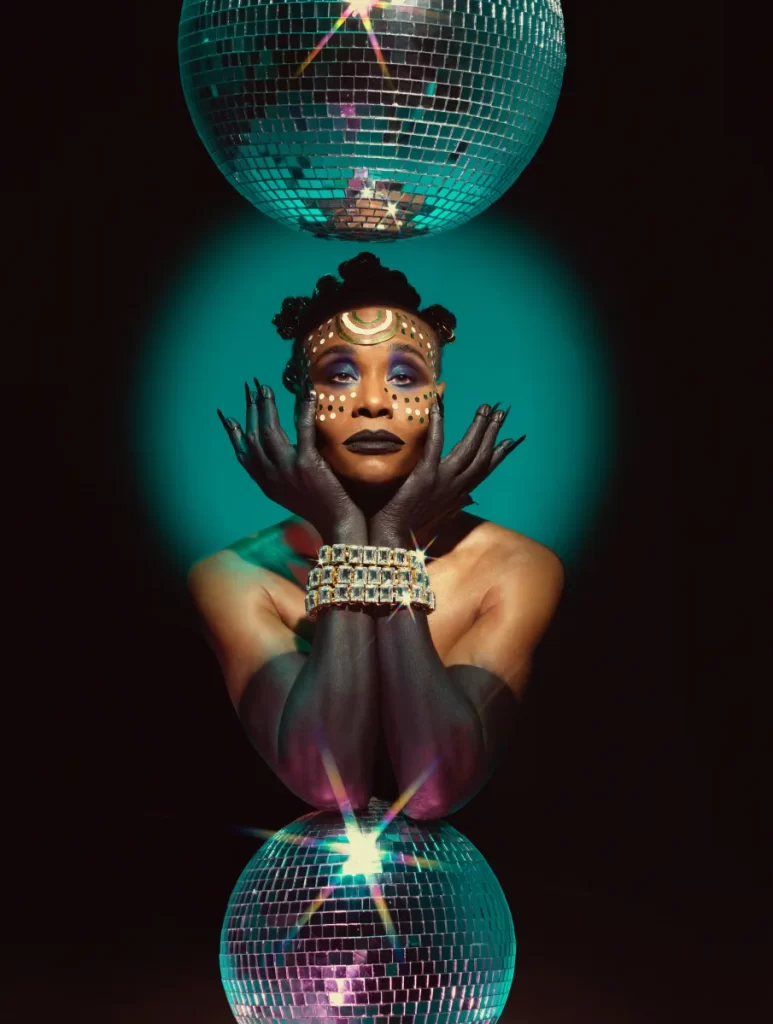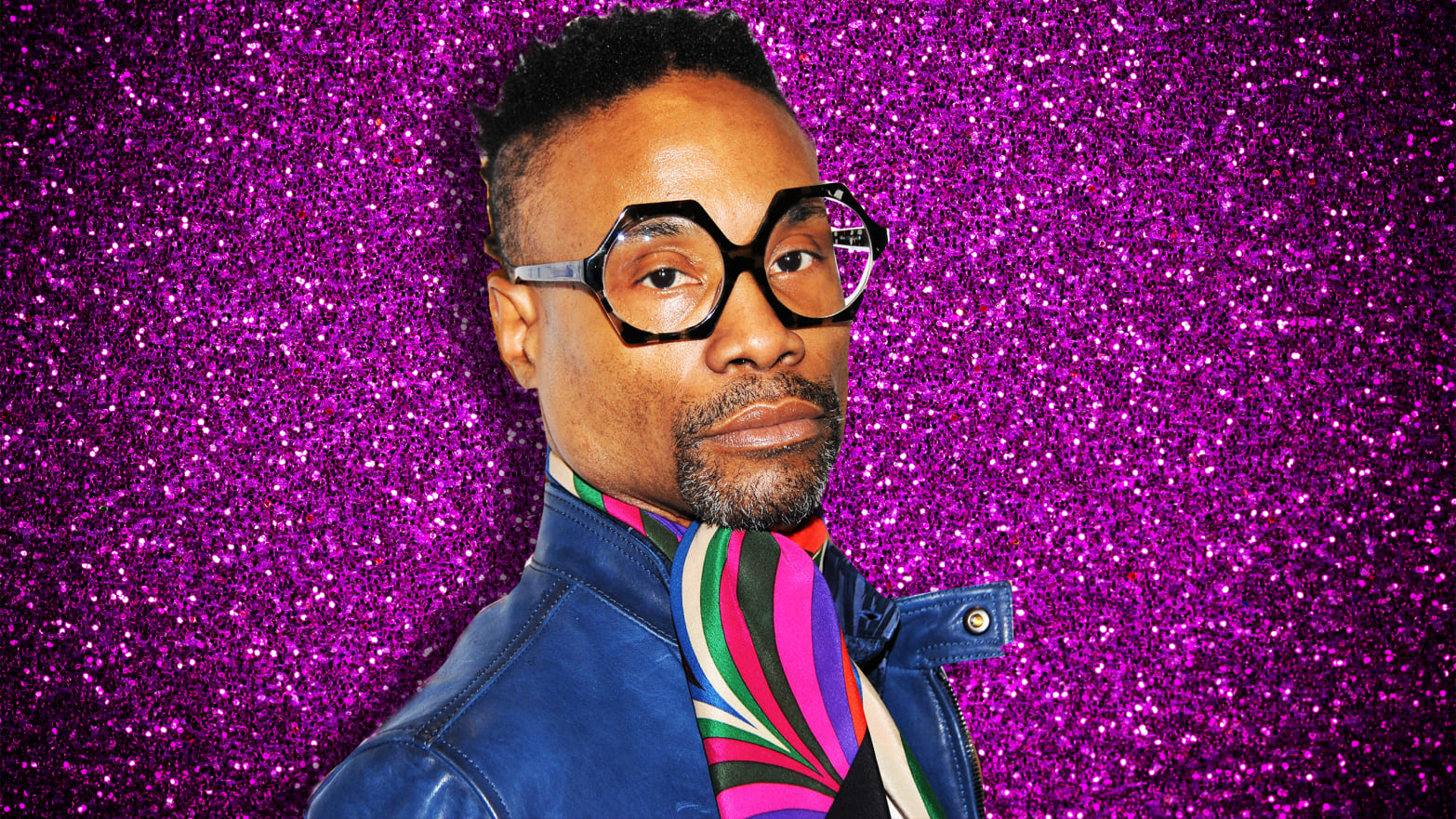
As a child in the 1970s, Billy Porter fantasized about growing up to become “the male Whitney Houston.”
He’ll dip back into that oft-deferred dream later this week, stopping in both San Jose and San Francisco for stops on his first full-fledged concert tour heralding the expected late summer release of his new album, “Black Mona Lisa, Volume I.”
While the Pittsburgh native’s public profile has exploded over the past decade thanks to triumphs on stage—two Tony awards, as Best Actor in “Kinky Boots” and co-producer of “A Strange Loop”, television—an Emmy for playing Pray Tell in the groundbreaking “Pose,” and red carpets, where his couture-cum-parade float ensembles have helped spark a new era of non-gender-specific high fashion; Porter, now 53, still holds tenaciously to his earliest showbiz dream.
It almost came true before Porter began to make a name for himself on the New York stage. Having pursued the pop star path even while earning his degree from Carnegie Mellon University’s acclaimed theater department, Porter appeared on the 1992 season of “Star Search,” the Ed McMahon-hosted “American Idol”-predecessor.
All signs seemed positive for jump-starting a solo music career after he won the show’s $100,000 prize as Best Male Vocalist (That same season’s Junior Vocalist competitors included a 10-year-old Britney Spears).
But, Porter explained to the Bay Area Reporter in a recent interview, as radio formats began to splinter and hip-hop overtook the R&B and Quiet Storm formats that had thrived in the 1980s, the predominant image of black men in pop music shifted significantly.
In the early 1990s music business was no longer particularly interested in the dance and soul music that Porter had mastered, instead leaning hard into toxically masculine thug-and-drug stylings.
“That was when,” recalled Porter, “they kicked my black faggot ass out” of the music business.

Given his theatrical training and television exposure, there were still opportunities available to Porter. Having debuted on Broadway in 1991 as an understudy in “Miss Saigon,” he made a more significant mark playing Teen Angel in the 1994 revival of “Grease.”
Over the following decades, Porter’s stage work included roles in major productions of “Dreamgirls,” Suzan-Lori Parks’ “Topdog/Underdog” and composer Adam Guettel’s acclaimed song cycle “Myths & Hymns.”
During that period, in which he also played small parts in television series and feature films, Porter released three albums, including both pop and theater music, which made little commercial impact.
Porter has made a stronger mark with more recent work in which he fully embraced his identity as a gay man as well as his own femininity.
In 2005, Porter’s solo autobiographical show “Ghetto Superstar” played to acclaim at Joe’s Pub at New York’s Public Theater and was nominated for a GLAAD award. In 2010, he played the nurse, Belize, in a revival of “Angels In America,” and in 2013, he originated the role of drag queen Lola in “Kinky Boots,” the Harvey Fierstein/Cyndi Lauper musical which truly ignited his star power and, he has said “cracked open” his feminine side and helped allow him to embrace his truest self.

It was “Kinky Boots” that paved Porter’s way to “Pose” and his subsequent emergence as an unofficial, but hugely influential, spokesperson for gender fluidity in fashion.
While Porter’s take on male couture has served as a cue for male stars of a younger generation including Harry Styles, Timothée Chalamet, and Ezra Miller, its notable that none of these male fashion acolytes have been black. This despite the androgyny celebrated in “Pose” and the black ball culture that inspired it.
That said, Porter himself has accrued enough visibility and cultural cachet that he finds himself able to confidently return to the world of pop music he was once edged out of for not adhering to masculine ideals.
The “Black Mona Lisa” tour and album find him working with mainstream pop producers and writers including Justin Tranter and MNEK, who have collaborated on huge hits with everyone from Justin Bieber to Beyonce.
Porter is a co-writer on all of his new songs, which sparkle with modern studio production technique but also offer throwback glimpses of the disco era and provide showcases for his powerhouse vocals reminiscent of Aretha Franklin, Al Green and Gladys Knight.
“I’m embracing the fact that I’ve stood the test of time,” says Porter, of his return to his first love and the opportunity that he has carved himself through years of hard work.
Thinking back on Luther Vandross, the closeted gay R&B superstar of the 1980s, Porter acknowledges “Luther took the hit for me. It’s because of people like him that I’m able to be here now.”
Porter says its now his proud responsibility to blaze trails for future generations of gay black performers: “We all need a healing and this is my ministry. Daddy’s here for you. Lil Nas X is my child.”
Porter wants fans of his theater work to understand that unlike his Joe’s Pub show or the act he brought to Feinstein’s at the Nikko after hitting it big with “Kinky Boots,” the “Black Mona Lisa” show is not a cabaret act.
“Don’t come expecting Brian Stokes Mitchell!” he jokes, referencing the Broadway star, who has frequently done nightclub performances. “This is a pop concert, with a full band and that big energy.”
And probably a few costume changes to boot.
